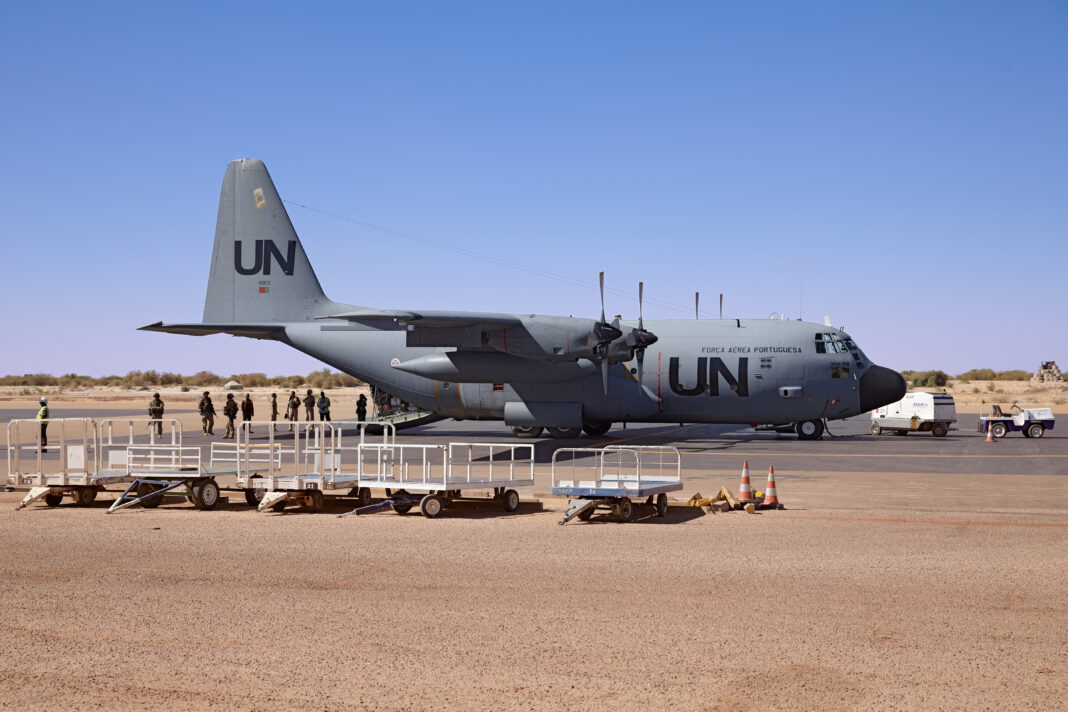by Marta Cavallaro
The decision came last Friday as the UN Security Council gathered to determine the fate of MINUSMA, its peacekeeping operation in Mali. Following the unanimous vote by the current 15 Security Council members, MINUSMA’s mandate is officially terminated as of 30 June 2023. UN troops are asked to cease their operations immediately and to withdraw the personnel by December 31. Until then, MINUSMA is authorized to fulfil only some specific functions within its capabilities and area of operation, including providing security for UN personnel, facilities, convoys, installations, and equipment. The operation will also be in a position to respond to immediate threats to civilians and contribute to the delivery of humanitarian assistance until September 30.
One might wonder: how did we get to this point? MINUSMA’s mandate was due to expire at the end of June. Given the security vacuum in the country and the lack of better alternatives, its renewal seemed to be taken for granted. Things changed when Malian authorities bluntly called the UN to withdraw the operation, denouncing its “failure” to respond to security challenges. Given the centrality of the host State’s consent for the deployment of every foreign and international mission in its territory, MINUSMA’s fate suddenly appeared doomed.
MINUSMA was deployed ten years ago to help stabilise Mali in the wake of a Tuareg insurgency that in 2013 gave rise to a continuing rebellion led by jihadist and separatist groups. Tensions between Malian authorities and the international presence in the country did not develop out of the blue. Frustrations about the unresolved growing insecurity in the country led to two military coups in 2020 and 2021.
Since then, military rule has increasingly and gradually soured relations with traditional allies such as France, Mali’s former coloniser, while forging closer ties with Russia. MINUSMA’s withdrawal follows Mali’s decision to pull out of the G5-Sahel Joint Force in May 2022, as well as the departure of the French counter-terrorism operation Barkhane in August 2022, and the termination of the EU Takuba task force’s presence in Malian territory in June 2022. In the meantime, the Wagner Group has been spotted fighting jihadists in Mali since 2021 with incredible humanitarian costs, as an increase in violence against civilians has been recorded in number and severity since its arrival in the country.
Interviewed by International Crisis Group, Jean-Hervé Jézéquel and Ibrahim Maïga hinted at some of the reasons behind the MINUSMA’s mandate termination. According to the two experts, even if the withdrawal request is the culmination of a process that began almost two years ago following the 2021 military coup, a turning point was represented by the publication of a UN High Commissioner for Human Rights report on the March 2022 Moura massacre.
The report, which was the result of an investigation carried out in collaboration with the MINUSMA Human Rights Division, accused the Malian armed forces and their Russian partners of participating in the mass execution of several hundred civilians during sweep operations in the town of Moura. Malian authorities vehemently denied these accusations, denouncing the UN inquiry as an instance of “espionage” to undermine Bamako’s decision to align itself with Russia. The report intensified pre-existing tensions between Mali and its mission while increasing Malian leaders’ concern about potential legal action or targeted sanctions as a result of the accusations received.
It is still hard to predict the consequences of MINUSMA’s departure from Mali. The declarations released by a coalition of Malian rebels, denouncing MINUSMA’s withdrawal as a “fatal blow” to the peace deal, signals that MINUSMA’s departure might further weaken the peace process underway since 2015 when the Algiers peace agreement was signed by the Malian government, the Coordination of Azawad Movements (the main coalition of former rebel groups) and the Platform of Algiers (a conglomerate of pro-government groups). At the same time, MINUSMA’s termination will result in the loss of valuable governance, humanitarian aid resources, stabilisation projects and jobs that were being funded and generated by the UN.
It should be noted, however, that MINUSMA’s withdrawal will not end the UN presence in Mali altogether. Civilian agencies, such as the UN Development Programme and the World Food Programme, might still have a key role to play, considering the increasingly complex humanitarian situation.
Cover image: United Nations airplane Lockheed C130 Hercules ©DemarK/Shutterstock.com
























